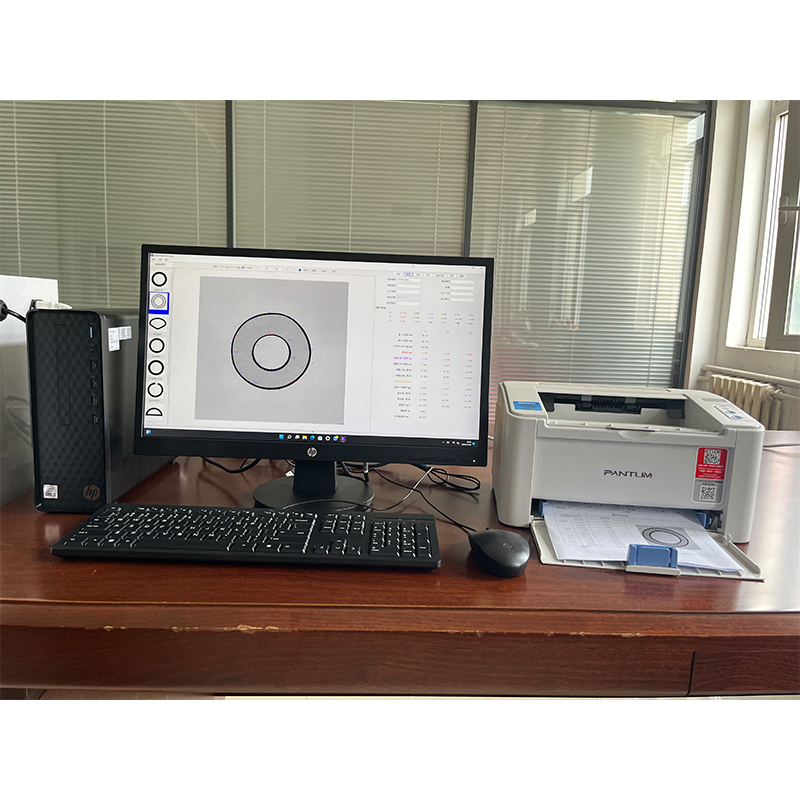cable flexibility test machine supplier
Understanding Cable Flexibility Test Machines Choosing the Right Supplier
In today’s manufacturing landscape, the reliability and performance of cables are of utmost importance. Whether used in telecommunications, aerospace, automotive, or industrial settings, cables must undergo rigorous testing to ensure they can withstand various environmental conditions and mechanical stresses. One vital test involves assessing the cable's flexibility, which determines its ability to bend without breaking or degrading. As a result, the demand for cable flexibility test machines has surged, leading to a growing number of suppliers in the market. Choosing the right supplier for these machines is crucial for manufacturers seeking to ensure product quality and compliance with industry standards.
The Importance of Cable Flexibility Testing
Cable flexibility testing evaluates a cable's endurance against repeated bending. This process simulates real-world conditions where cables are frequently moved, twisted, or bent. Poorly performing cables can result in failures that not only affect the functionality of devices but can also pose safety hazards. Conducting flexibility tests allows manufacturers to identify potential weaknesses early in the production process, helping to lower the risk of product recalls and enhance customer satisfaction.
Key Features of Cable Flexibility Test Machines
When selecting a cable flexibility test machine, manufacturers should consider several essential features
1. Adjustable Testing Parameters A high-quality test machine should allow operators to set various parameters, such as bend radius, speed of bending, and number of cycles. This flexibility ensures that tests can mimic real-world scenarios tailored to specific cable applications.
2. Advanced Measurement Capabilities The ability to accurately measure parameters such as the amount of deformation, tension, and temperature during testing is vital. Some machines come equipped with advanced sensors and software that provide real-time data monitoring and reporting capabilities.
3. Robust Construction The machinery itself must be constructed from high-quality materials to withstand the strain of continuous testing. A well-built machine is crucial for maintaining consistent testing standards and minimizing downtime for repairs.
4. User-Friendly Interface An intuitive interface makes it easier for operators to set up tests and interpret results, reducing the likelihood of human error and enhancing workflow efficiency.
cable flexibility test machine supplier

5. Compliance with Industry Standards It’s essential to ensure that the equipment complies with relevant industry standards and certifications, such as IEC, UL, or CSA. This compliance guarantees that the test results are valid and recognized by regulatory bodies.
Evaluating Potential Suppliers
Selecting the right supplier for cable flexibility test machines involves careful consideration of several factors
1. Reputation and Expertise Investigate the supplier’s track record in manufacturing testing equipment. Suppliers with a long-standing history in the industry often have the experience and knowledge necessary to provide high-quality machines.
2. Customer Reviews and Testimonials Examining feedback from other clients can provide insights into the reliability of the machines and the level of customer service offered. Positive reviews often reflect a supplier’s commitment to quality and customer satisfaction.
3. Technical Support A reputable supplier should offer robust technical support, including installation assistance, training for operators, and ongoing maintenance services. A responsive support team can significantly enhance the longevity and effectiveness of the testing machine.
4. Customization Options Depending on specific testing requirements, manufacturers may need customized solutions. A supplier that offers tailored solutions can provide equipment that meets unique specifications and enhances operational efficiency.
5. Cost-Effectiveness While price shouldn’t be the sole criterion, it’s essential to evaluate the cost in relation to the features and capabilities offered. A higher initial investment may yield more reliable results and lower maintenance costs in the long run.
Conclusion
The choice of a cable flexibility test machine supplier plays a pivotal role in ensuring the quality and reliability of cable products. Manufacturers must invest time and effort in evaluating potential suppliers based on their reputation, expertise, product offerings, and support services. By selecting a qualified supplier, manufacturers can enhance their production processes, comply with industry standards, and deliver superior products to their customers.
-
Why the Conductor Resistance Constant Temperature Measurement Machine Redefines Precision
NewsJun.20,2025
-
Reliable Testing Starts Here: Why the High Insulation Resistance Measuring Instrument Is a Must-Have
NewsJun.20,2025
-
Flexible Cable Flexing Test Equipment: The Precision Standard for Cable Durability and Performance Testing
NewsJun.20,2025
-
Digital Measurement Projector: Precision Visualization for Modern Manufacturing
NewsJun.20,2025
-
Computer Control Electronic Tensile Tester: Precision and Power for the Modern Metal Industry
NewsJun.20,2025
-
Cable Spark Tester: Your Ultimate Insulation Assurance for Wire and Cable Testing
NewsJun.20,2025
 Copyright © 2025 Hebei Fangyuan Instrument & Equipment Co.,Ltd. All Rights Reserved. Sitemap | Privacy Policy
Copyright © 2025 Hebei Fangyuan Instrument & Equipment Co.,Ltd. All Rights Reserved. Sitemap | Privacy Policy
